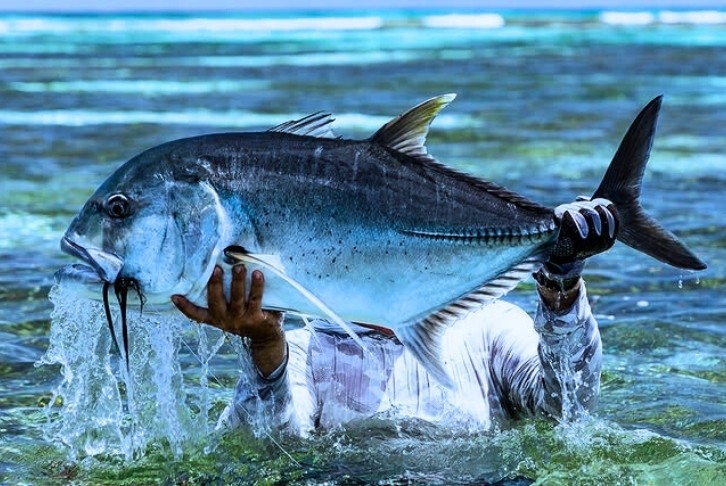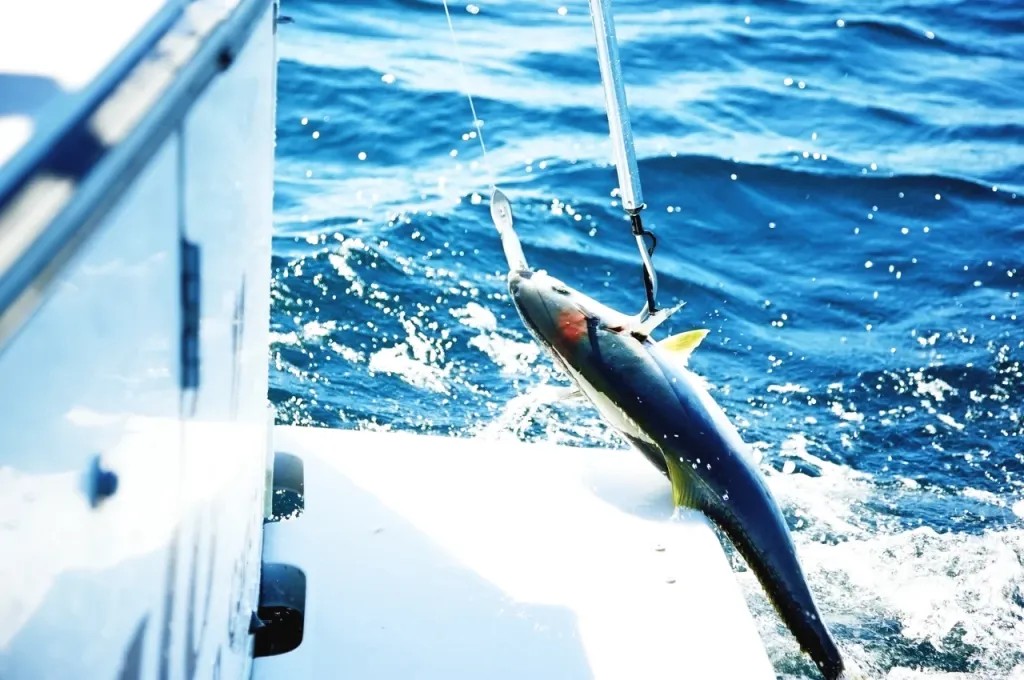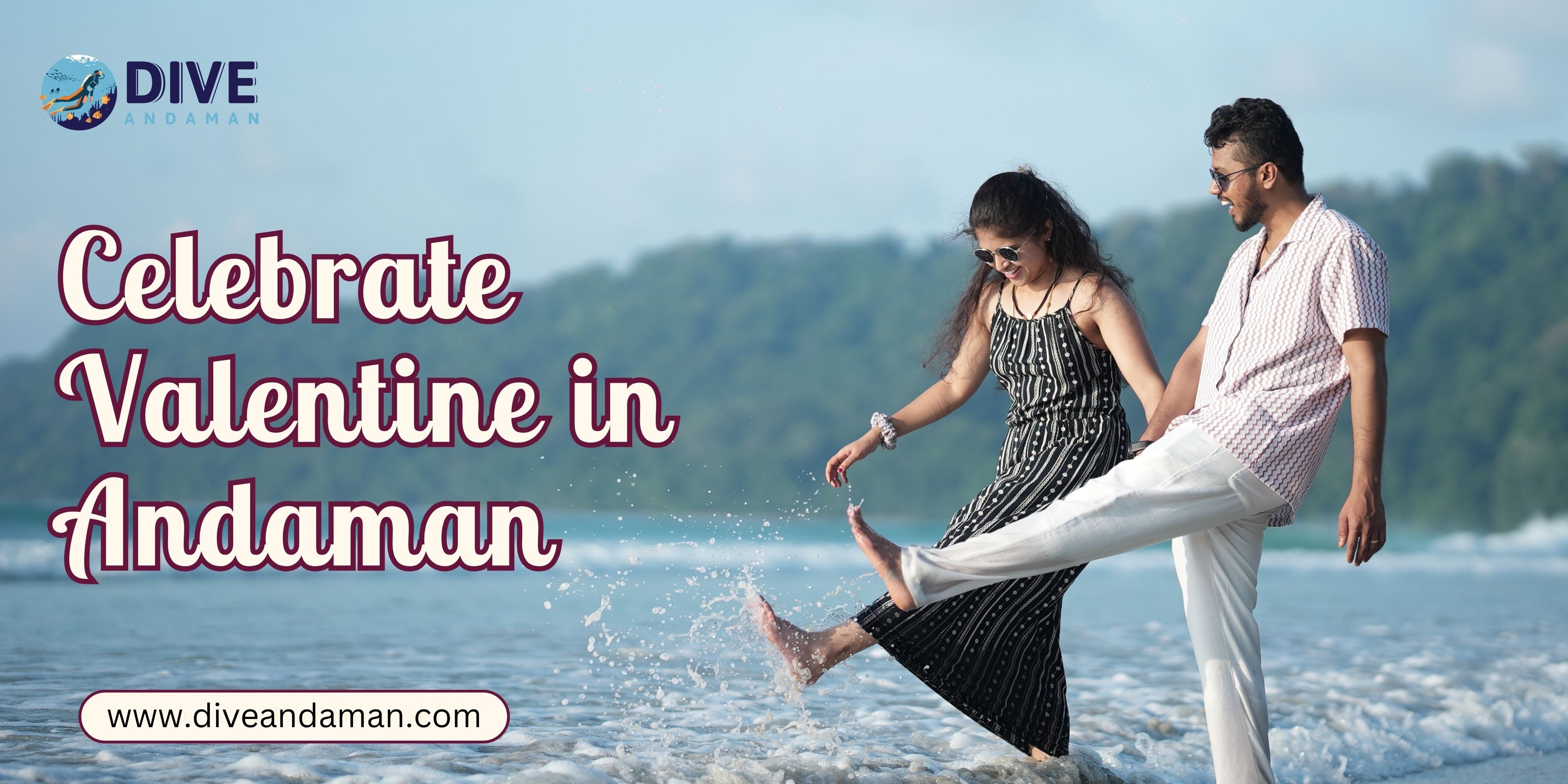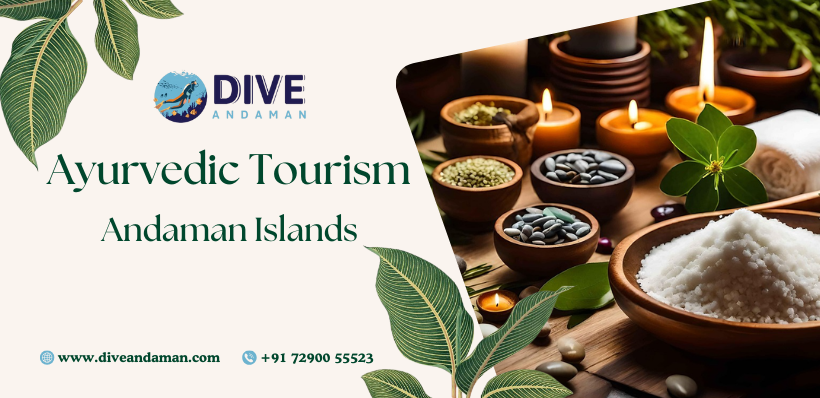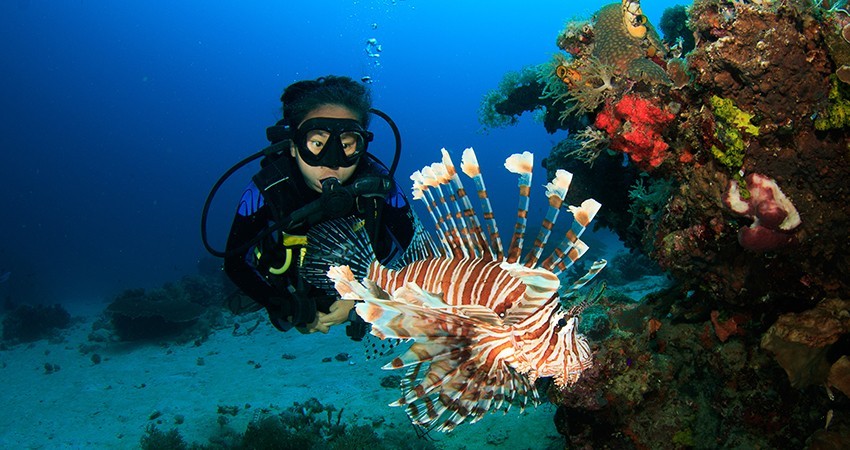Diving Sites in Port Blair



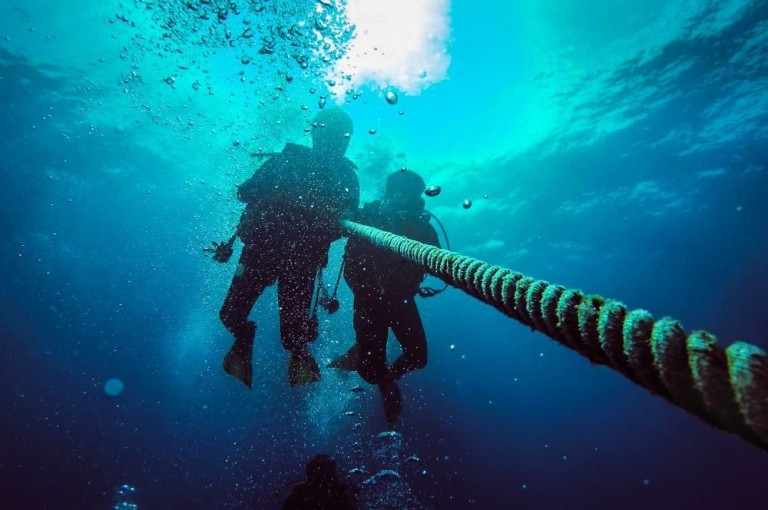
-
Aug 01, 2023
Diving is more than just a sport or a recreational activity; it's a life-altering experience. It gives you access to a world that most people only see in documentaries or museums. If you're a water enthusiast and are thinking of taking the plunge into the deep blue, the PADI Open Water Diver Course is an excellent place to start. Here are the top five reasons why you should consider enrolling in this prestigious course.
What is the PADI Open Water Diver Course?
The Professional Association of Diving Instructors (PADI) Open Water Diver Course is one of the most popular and globally recognised scuba diving certifications. It provides the foundational knowledge and skills needed to explore the underwater world safely and confidently.
What Does the Course Entail: The PADI Open Water Diver Course is divided into three main parts: Knowledge Development, Confined Water Dives, and Open Water Dives.
Knowledge Development: In this first phase, students learn the basic principles and theory of scuba diving. This includes understanding the effects of pressure on your body, how to select scuba gear, diving safety guidelines, and an introduction to dive planning. The knowledge development phase can be completed online, independently, or in a classroom setting with an instructor.
Confined Water Dives: Once the theory part is complete, students move on to practising basic scuba skills in a confined water setting, often a swimming pool or shallow body of water. Here, students learn key skills such as setting up scuba gear, clearing a mask of water, recovering a regulator, buoyancy control, and emergency procedures in a controlled and safe environment.
Open Water Dives: The final part of the course involves applying the skills learned in the confined water dives to an open water environment. Students will typically complete four open water dives under the supervision of their PADI instructor, where they will have the chance to explore the underwater world while demonstrating mastery of the skills learned throughout the course.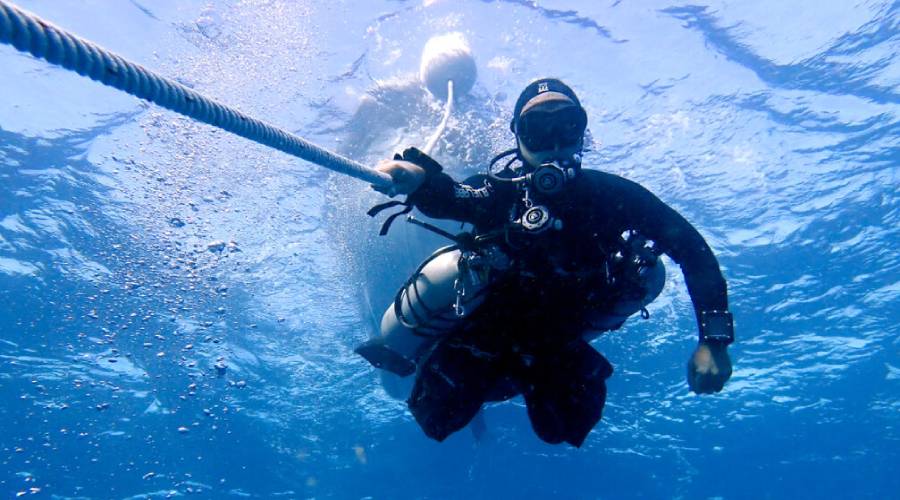
Top 5 reasons why you should take PADI Open Water Diver Course
- Gateway to the Underwater World
The PADI Open Water Diver Course is not just any scuba diving training; it's your ticket to the vast and magical underwater world. As the world's most recognised scuba diving certification, it allows you to dive independently with a buddy, without the need for professional supervision. This certification is also internationally recognized, meaning you can explore the mysteries of the ocean anywhere in the world.
- Comprehensive Training
The PADI Open Water Diver Course provides comprehensive training designed to ensure your safety and confidence underwater. The course is divided into three sections: knowledge development, confined water dives, and open water dives. During your knowledge development, you'll learn essential theoretical aspects of scuba diving, such as how pressure affects your body, how to choose the best diving gear, and how to plan dives. The confined water dives allow you to practice basic scuba skills in a controlled and safe environment. Finally, the open-water dives will let you explore the aquatic realm while applying all the skills you've learned.
- Endless Opportunities for Adventure
Scuba diving opens the door to endless underwater adventures. Whether it's exploring coral reefs teeming with life, investigating mysterious shipwrecks, or coming face-to-face with breathtaking marine life, there's always something new and exciting to see and discover. Plus, the PADI Open Water Diver Course is the first step on the scuba certification ladder. You can advance to other specialty and professional-level courses, like the PADI Advanced Open Water Diver or Rescue Diver, opening even more opportunities for exploration and adventure.
- Connection to a Global Community
Being a PADI Open Water Diver means you become part of a worldwide community of diving enthusiasts. You can connect with like-minded individuals, share your diving experiences, learn from others, and even participate in conservation initiatives. It's not just about acquiring a new skill, it's about becoming part of a global family that shares a love for underwater exploration and conservation.
- Health and Wellness Benefits
Lastly, scuba diving is not just fun and exciting, but it also brings a myriad of health benefits. It's a great way to improve your physical fitness as it helps increase strength, endurance, flexibility, and coordination. Being underwater can also have a calming, almost meditative effect, which can help reduce stress and improve mental well-being. Plus, the sense of awe and wonder you get from exploring underwater environments can truly enrich your perspective on life and nature.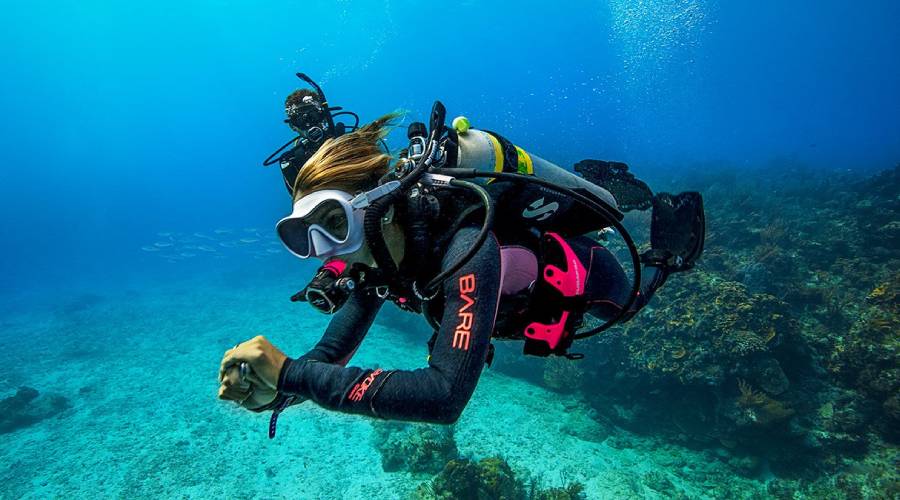
What Do You Get After Completing the Course?
Upon successful completion of the PADI Open Water Diver Course, you receive the PADI Open Water Diver certification - an accomplishment that offers you numerous benefits and opportunities. Let's delve into what this certification entails:
Global Recognition: The PADI Open Water Diver certification is globally recognised, meaning you can dive independently anywhere in the world. It's acknowledged and accepted by diving professionals and resorts worldwide.
Lifetime Certification: The Open Water Diver certification is for life. You do not need to renew it annually or after a certain number of years. Once you're certified, you're always certified. However, if you have not been diving for an extended period, it's recommended to take a refresher course to ensure your skills and knowledge are up-to-date.
Diving Privileges: With your PADI Open Water Diver certification, you can dive up to a maximum depth of 18 meters (60 feet), and you are eligible to participate in dives accompanied by a dive buddy of the same or higher certification level. This gives you the freedom to explore a wide range of underwater environments and see marine life in their natural habitats.
Opportunities for Further Training: The PADI Open Water Diver certification is a stepping stone to more advanced PADI courses. After completing it, you can take the PADI Advanced Open Water Diver course, Rescue Diver course, or explore one of the many specialty courses like Deep Diver or Wreck Diver, thus expanding your skills and diving experiences.
Participation in Dive Trips and Events: Being a certified diver opens the doors to participating in dive trips, events, and community activities organized by dive centres and clubs around the world..jpg)
Who Can Enrol for the PADI Open Water Diver Course:
The PADI Open Water Diver Course is open to anyone who is in good health, reasonably fit, and comfortable in the water.
Age: You must be at least 10 years old for the Junior Open Water Diver and 15 years old for the Open Water Diver.
Health: All prospective divers must complete the PADI Medical Statement, which includes a detailed medical questionnaire.
Swimming Skills: You should have basic swimming skills to get a scuba certification. The PADI Open Water Diver course requires students to pass a swim test that involves swimming 200 meters/yards (or 300 meters/yards in mask, fins and snorkel). There is no time limit for this, and you may use any swimming strokes you want. You may also need to be able to float or tread water for 10 minutes.
What is the Cost of doing the PADI Open Water Diver Course?
The cost of pursuing the PADI Open Water Diver Course in the Andaman Islands, India, can vary depending on several factors, including the dive centre you choose, the time of year, and whether any additional services or amenities are included. The cost typically ranged from approximately INR 25,000 to INR 30,000 for 4 to 5 days of training.
Here's what you can generally expect to be included in this cost:
Course Materials and Instruction: This includes the cost of the training materials, either digital or physical, and the instruction by a PADI professional for the duration of the course.
Equipment Rental: All essential scuba diving equipment should be included in the course cost. This typically covers the regulator, buoyancy control device (BCD), tanks, weights, mask, snorkel, fins, and wetsuit if required.
Dive Costs: The cost generally covers all dives required to complete the course, including both confined water training dives and open water certification dives.
Certification Fees: Once you've successfully completed the course, the dive centre will process your certification with PADI, and this fee is usually included in the course cost.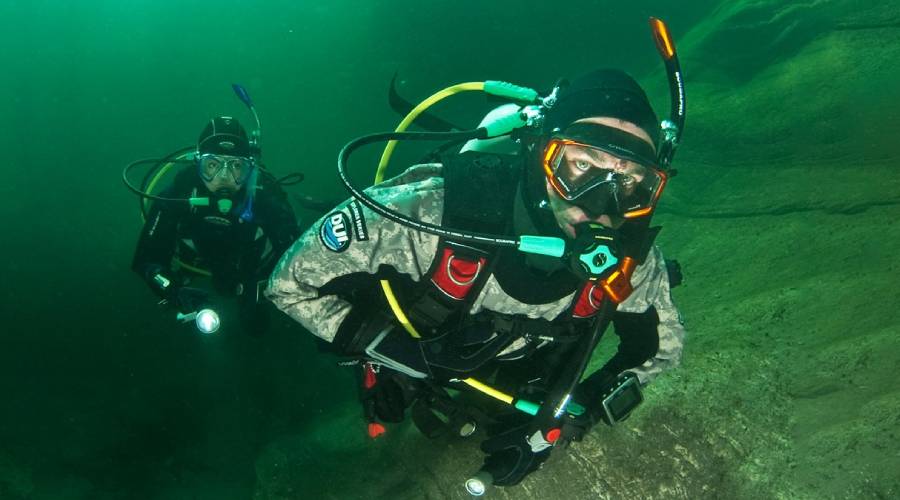
PADI Open Water Diver Course: FAQs
What are the prerequisites for the PADI Open Water Diver Course?
Answer: To enrol in a PADI Open Water Diver Course, you must be 10 years old or older, in good physical health, and able to swim.
How long does the PADI Open Water Diver Course take?
Answer: The duration of the course can vary depending on the individual and the dive centre, but typically, it can be completed in 4-5 days.
What is the maximum depth I can dive with a PADI Open Water Diver certification?
Answer: The maximum depth you can dive with an Open Water Diver certification is 18 meters/60 feet.
Do I need to renew my PADI Open Water Diver certification?
Answer: No, the certification is valid for life. However, if you have not been diving for an extended period, it's recommended to take a refresher course to brush up on your skills and knowledge.
Can I take the PADI Open Water Diver Course online?
Answer: The theoretical part, or Knowledge Development, can be completed online through PADI eLearning. However, the Confined Water and Open Water Dives need to be completed in person with a PADI instructor.
What equipment will I use during the course?
Answer: During the course, you will use basic scuba gear, including a mask, snorkel, fins, regulator, buoyancy control device, dive computer, and a tank.
Diving Sites in Port Blair
Diving Sites in Havelock Island
Diving Sites in Neil Island
